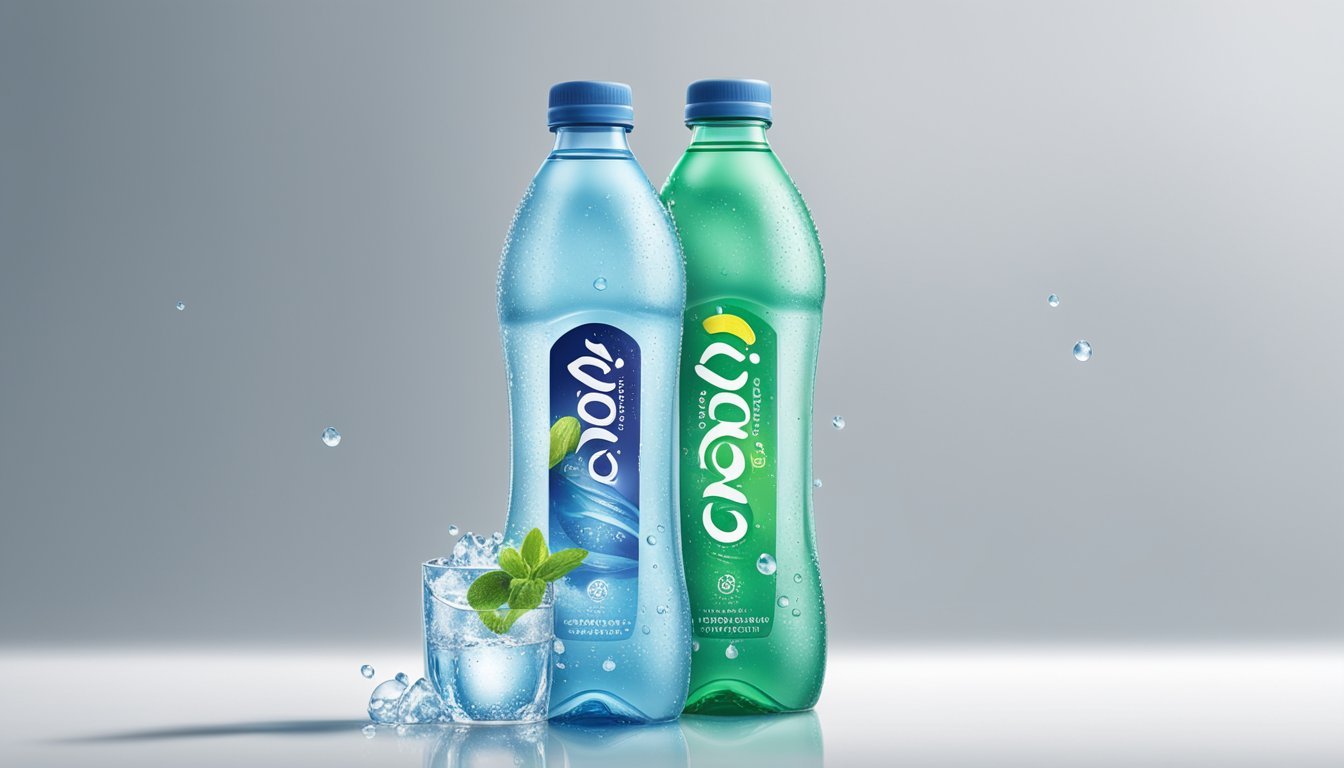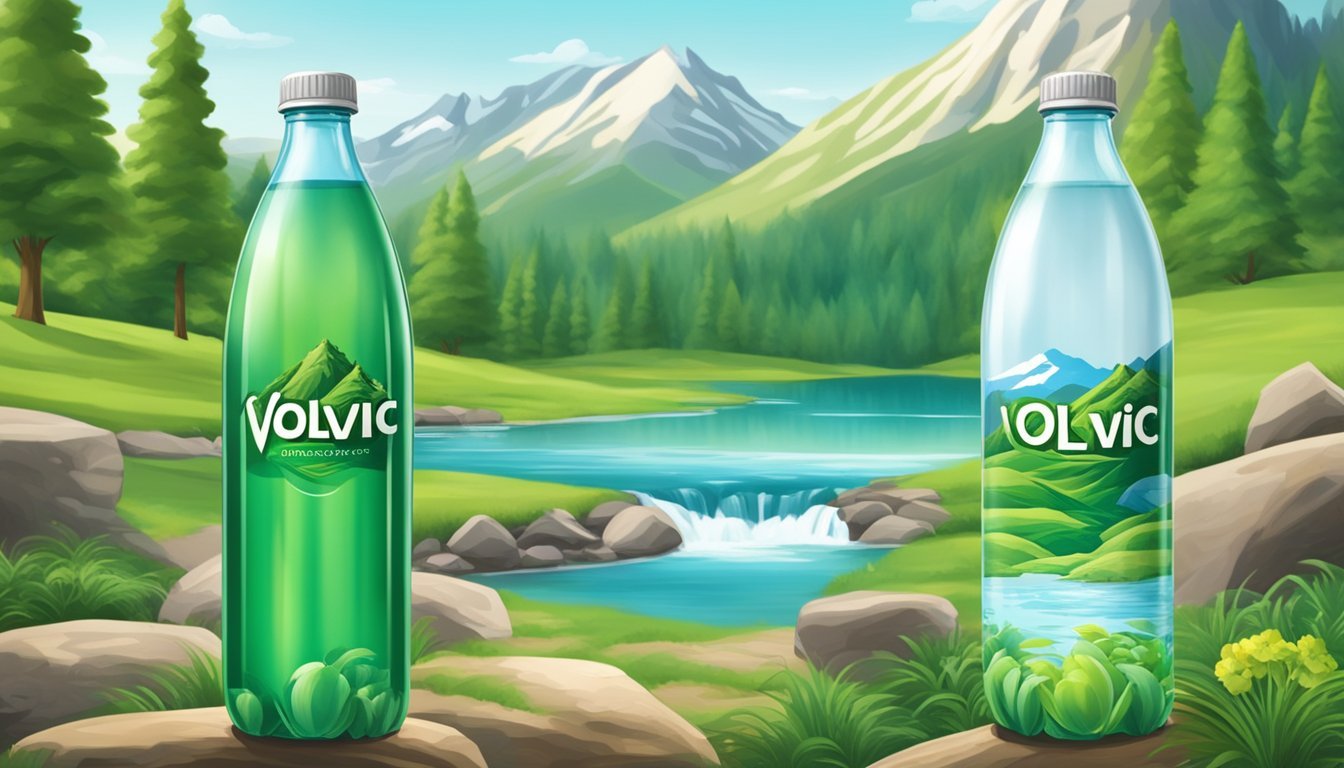Volvic vs. Ophora
Comparing Quality, Taste, and Purity
When it comes to choosing between Volvic and Ophora bottled water, consumers are often faced with a challenging decision. These two brands stand out for their unique attributes and distinct flavor profiles, making each an attractive option in the world of premium bottled water. By examining factors such as mineral content, source purity, and overall taste, Volvic tends to be the better option for those seeking a balanced and naturally refreshing experience.
Volvic water, sourced from the volcanic region of Auvergne in France, is renowned for its crisp, clean taste and balanced mineral content. It’s particularly celebrated for its smooth texture and slight hint of minerals, which appeals to a wide range of palates. Many consumers appreciate Volvic for its price point and accessibility, making it a popular choice for daily hydration.
On the other hand, Ophora water prides itself on its purity and high oxygen content, aimed at offering unique health benefits. Advertised as a "super-oxygenated" water, it is targeted towards those who are health-conscious and willing to invest in a more premium option. Despite its higher price, Ophora offers a distinct, almost clinical level of purity that appeals to a niche market segment focused on wellness and optimal hydration.
The Significance of Water Source and Origin
The source and origin of bottled water significantly impact its taste, mineral content, and overall quality. This section explores the key aspects of natural spring water and the importance of purity and filtration processes.
Understanding Natural Spring Water
Natural spring water is sourced from underground springs, often located in pristine environments. Volvic, for instance, originates from the Auvergne volcanic region in France. Here, the water filters naturally through layers of volcanic rock, which imparts a unique mineral composition.
Ophora, on the other hand, sources water from various pristine locations where advanced filtration methods are applied. Both brands emphasize the natural and pure origins of their water, yet the unique geological conditions of each source play a critical role in defining their distinct qualities.
Purity and Filtration Processes
Filtration is crucial in maintaining the purity of bottled water. Volvic relies on the natural filtration process provided by volcanic rock, ensuring a unique and natural mineral balance. This natural process eliminates impurities without the need for additional chemical treatment.
Ophora combines natural purity with advanced technology. Utilizing 14 levels of filtration, including reverse osmosis, Ophora ensures removal of carcinogens and other contaminants. This rigorous process results in water with balanced alkalinity and high oxygen stabilization, distinguishing it in the market.
Together, these processes emphasize the importance of both source and filtration in delivering high-quality bottled water to consumers.
Health and Hydration
When considering the health benefits and hydration properties of Volvic and Ophora, several factors come into play, including their electrolyte and mineral content, and comparisons with tap water and other bottled brands such as Evian, Fiji, smartwater, and Dasani.
Electrolytes and Mineral Content
Electrolytes like potassium, calcium, and magnesium are essential for maintaining hydration and supporting bodily functions. Volvic water is sourced from volcanic regions, giving it a natural supply of minerals. It contains notable amounts of silica, calcium, and magnesium, which contribute to its health benefits. These minerals support metabolic processes and improve hydration efficiency.
Ophora takes a different approach by infusing its water with additional electrolytes and maintaining an alkaline pH level. The enhanced pH aims to neutralize acidity in the body, purportedly offering improved hydration and health benefits. This differentiation might appeal to those looking for added health features beyond standard mineral content.
Comparisons with Tap and Other Bottled Waters
When comparing Volvic and Ophora to tap water, the mineral content and purity are significant advantages. While tap water can contain varying levels of contaminants and fewer minerals, both Volvic and Ophora provide cleaner, more consistent hydration options.
Against other bottled brands, Volvic's natural mineral water offers distinct benefits. Brands like Evian and Fiji are also rich in minerals, but specific profiles can vary. Smartwater, Dasani, and Aquafina often undergo thorough purification processes that add electrolytes for taste and hydration.
Volvic’s natural volcanic filtration contrasts with Ophora's technological enhancements, making the choice dependent on personal preference for natural minerals or engineered benefits. Both brands provide superior hydration compared to tap water, with unique attributes catering to different health and hydration goals.
Environmental Considerations
The environmental impact of bottled water brands is a significant factor for consumers. Key considerations include the sustainability and recyclability of packaging, as well as the broader environmental effects of bottled water production.
Packaging and Sustainability
Volvic primarily uses plastic bottles in its packaging, which contribute to plastic waste. These bottles are made from PET (Polyethylene Terephthalate), a recyclable material; however, the recycling rates are not always optimal. Volvic has taken steps toward more sustainable packaging, aiming to increase the use of recycled plastic in their bottles.
In contrast, Ophora uses glass bottles, which do not contain BPA and are often considered more sustainable due to higher recycling rates. Glass is infinitely recyclable and has a longer lifecycle compared to plastic. However, glass bottles are heavier, leading to potentially higher carbon emissions during transportation. Evaluating the balance between recyclability and transportation impacts is crucial.
Impact of Bottled Water Production
The production processes for both Volvic and Ophora have distinct environmental impacts. Volvic sources its water from a natural volcanic spring, and its production involves minimal industrial processing. Despite this, the company must manage the sustainability of its water source to prevent over-extraction, which can harm local ecosystems.
Ophora’s production focuses on purification and oxygenation of water, which may require more energy but aims to offer health benefits. The company emphasizes sustainable extraction practices, ensuring that their processes do not deplete natural water reserves. Comparing the environmental footprint of these production methods involves considering both the energy used in processing and the sustainability of water sourcing.
By understanding how each brand approaches packaging, sustainability, and production, consumers can make more informed choices that align with their environmental values.
Culinary and Aesthetic Aspects
Examining both taste profiles and packaging reveals how Volvic and Ophora cater to different consumer needs and preferences in the bottled water market. Each brand brings unique attributes to the table, influencing their popularity among consumers.
Taste Profile and Preferences
Volvic water is praised for its neutral pH, typically between 7.0 and 7.5, which provides a smooth and balanced taste. This neutrality makes it versatile for culinary uses, such as brewing tea or enhancing the natural flavors of food without overpowering them.
Ophora, on the other hand, highlights its enhanced mineral content and antioxidants, aiming to support optimal hydration. This results in a distinct taste that appeals to those who prioritize health benefits. The presence of essential minerals gives Ophora a slightly more complex flavor, which some consumers describe as fresher or cleaner compared to ordinary bottled water.
Presentation and Packaging
Volvic is often available in both plastic and glass bottles, catering to varying consumer preferences. The packaging features a simple, clean design that emphasizes the brand's natural source. Many consumers appreciate the convenience of plastic bottles for on-the-go hydration, while glass bottles are favored for their aesthetic appeal and environmental benefits.
Ophora sets itself apart with premium packaging, often using glass bottles that exude luxury and highlight the brand's health-focused attributes. The sophisticated presentation not only underscores the water's premium quality but also makes it a stylish addition to dining tables and upscale events. Additionally, Ophora's branding emphasizes sustainability, making it a preferred choice for eco-conscious consumers seeking both luxury and environmental responsibility.
By understanding these nuances, consumers can better choose a bottled water brand that aligns with their lifestyle and values.
Product Range and Brand Offerings
Both Volvic and Ophora offer an array of bottled water products tailored to different preferences and health needs. These offerings range from natural spring water to specialty selections like flavored and enhanced water.
Volvic's Product Varieties
Volvic sources its water from the Auvergne volcanic region in France, known for its mineral-rich spring water. This brand offers several varieties:
Natural Spring Water: Known for its purity and mineral content, this is the flagship product.
Flavored Water: Volvic provides options like lemon and strawberry, combining hydration with a hint of natural fruit flavors.
Enhanced Water: Options include products infused with minerals or vitamins, catering to those looking for extra health benefits.
Volvic’s commitment to environmental sustainability is evident with bottles made from recyclable and plant-based materials. This aligns with eco-conscious consumer preferences.
Ophora's Specialty Selections
Ophora offers premium bottled waters focusing on health and wellness. Key selections include:
Ultra-Pure Water: Engineered for maximum purity, making it suitable for sensitive individuals or medical applications.
Alkaline Water: With a higher pH level, this type appeals to those seeking to balance acidity in their diet.
Oxygenated Water: Marketed for its potential health benefits, including improved hydration and detoxification.
Sparkling Waters: These come in various mineral-infused options, providing a refreshing alternative to still water.
Ophora's choices are packaged in sleek, often glass, bottles that appeal to premium and health-conscious markets. The brand emphasizes its advanced purification processes and commitment to wellness.
More About Volvic
Mountain Valley Spring Water vs Volvic: Which Bottled Water is Better?
Volvic vs Kirkland Signature: Which Bottled Water is Better?
Volvic vs Richard's Rainwater: Which Bottled Water is Better?
Volvic vs Whole Foods Italian Still Mineral water: Which Bottled Water is Better?




